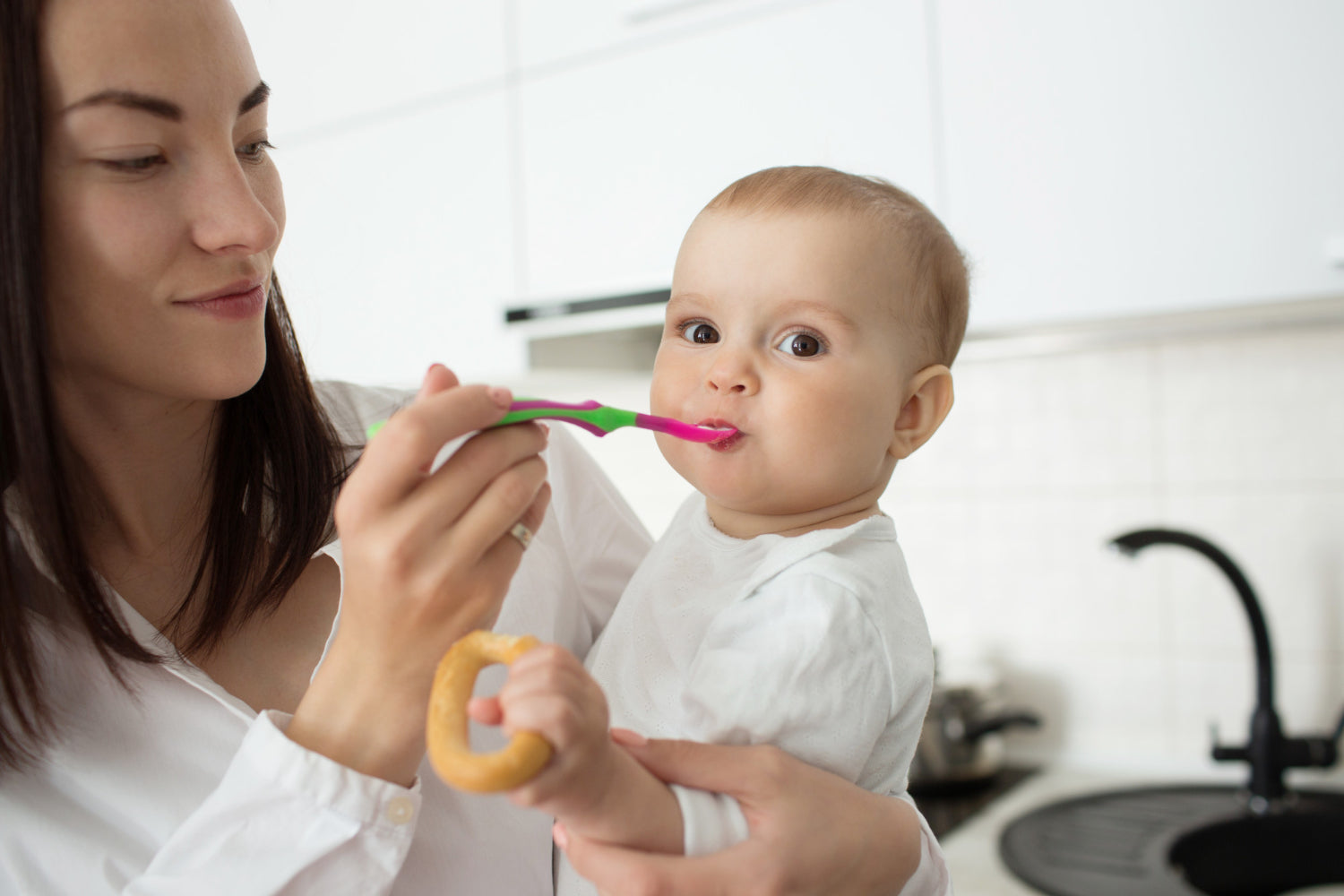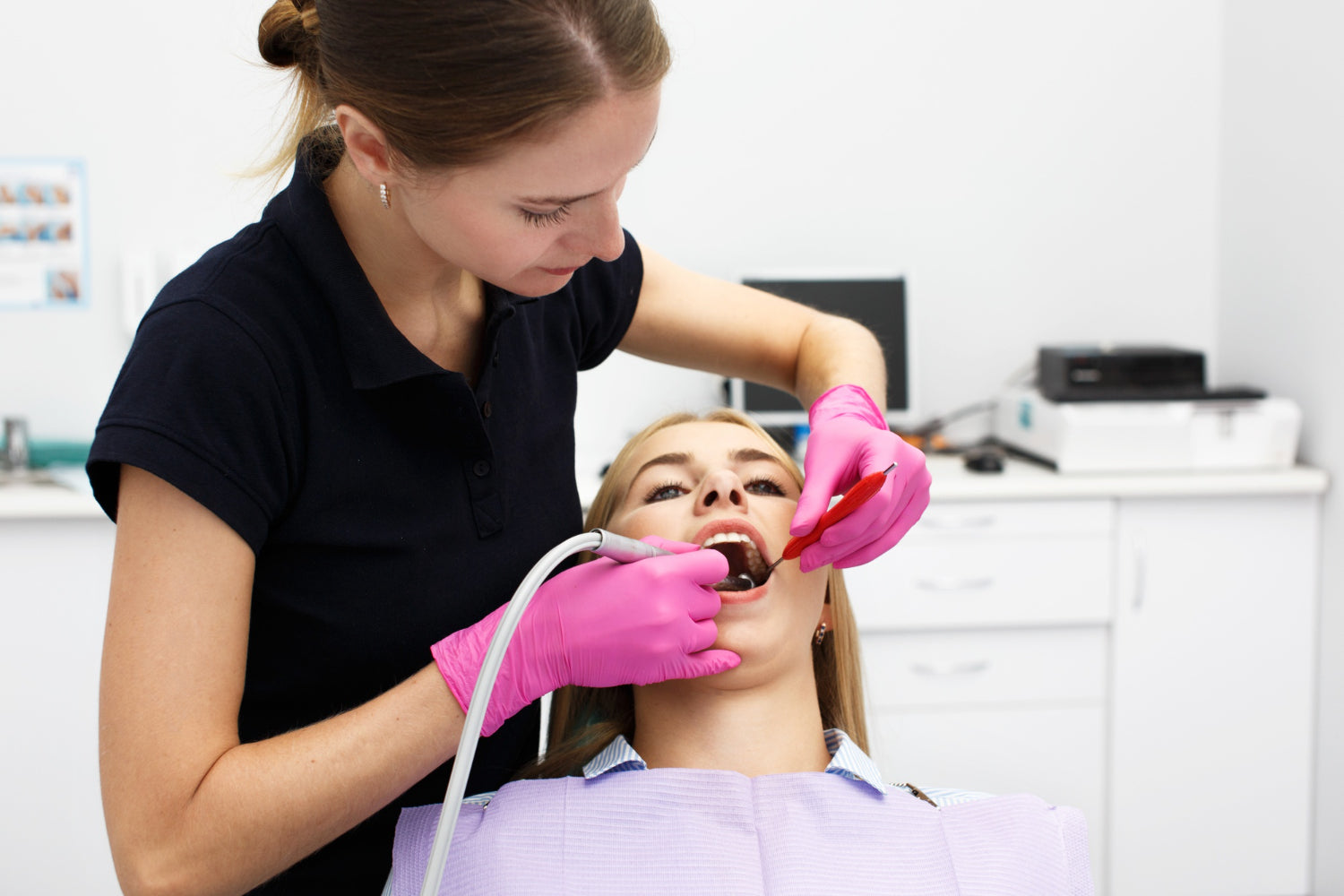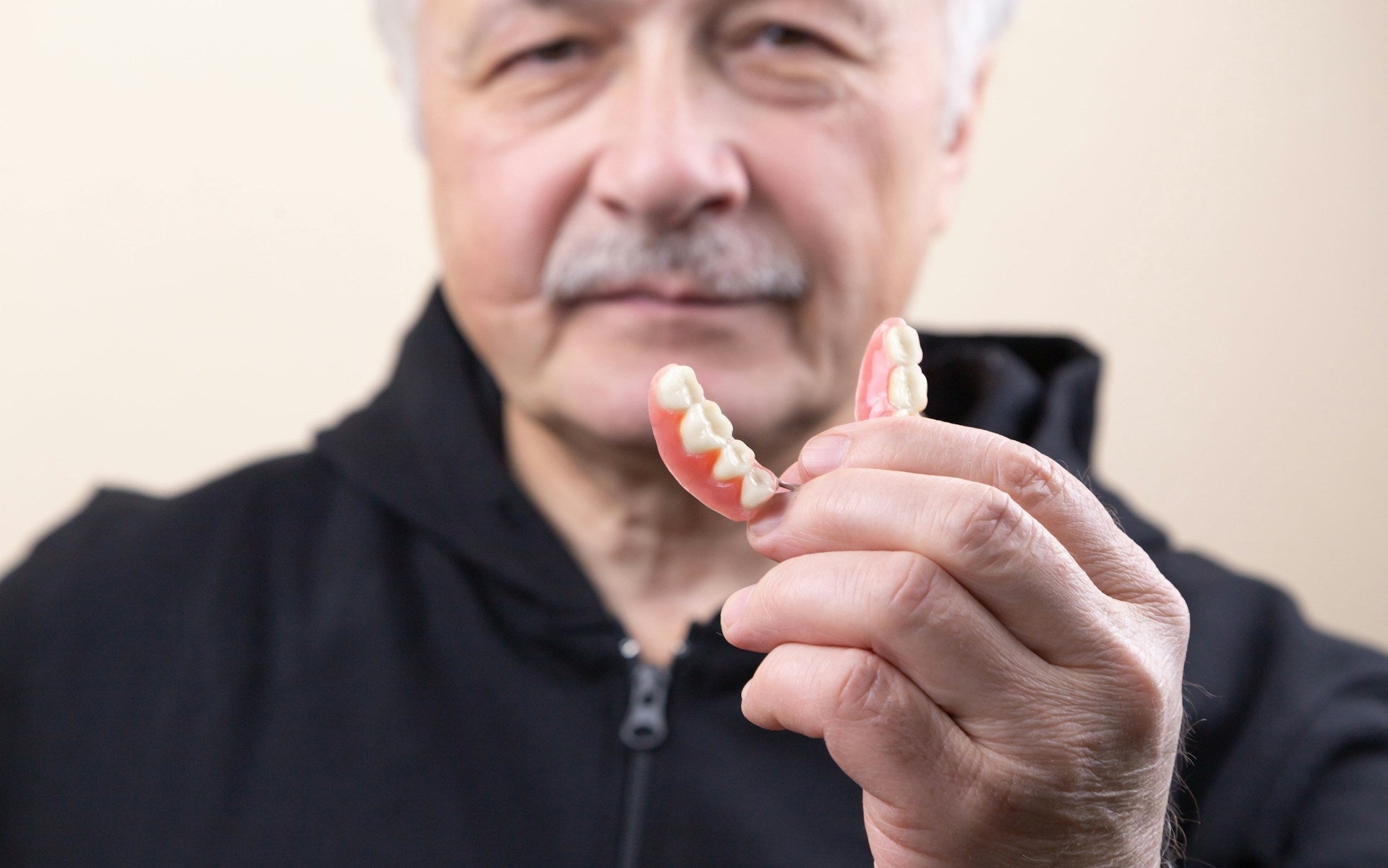Oral care for babies starts early. With a newborn, you can still refrain from brushing the non-existent teeth, but after four, five months you can definitely start.
The milk teeth are already laid out in the jawbone before birth, and eruption begins from the sixth month of life. However, you can start oral hygiene before then by gently wiping the chewing ridges with a clean washcloth. Babies often find this quite interesting. They also like to hold the washcloth themselves, suck out the water or chew on it.
Oral care for babies: Finger cots for cleaning the chewing ridges
If the washcloth seems too unwieldy, use microfiber cloths that have been specially developed for babies' oral care. These are finger cots, which even have different profiles depending on the manufacturer. The smooth side is used for massaging the gums. Babies usually find the pressure pleasant during teething, especially when the gums are swollen shortly before the teeth erupt. When the first tooth tips appear, the second, soft side can be used to clean the little teeth.
The advantage is that the pressure can be regulated very precisely with the oral care finger snares. Gum injuries are thus almost impossible. Mommy or daddy's finger may be more at risk, because some babies can bite hard even without teeth.
Getting the baby used to oral hygiene early on and through play
There are also toothbrushes for babies that are shaped like a teething ring. This makes it easy for the baby to get used to the feeling of having a brush in its mouth. Some advisors also recommend cleaning first tooth tips with a cotton swab. It's best to find out for yourself which method suits you and your baby best.
The main aim of oral hygiene before the first tooth is to get the baby used to oral hygiene in a playful way. Once the first tooth becomes visible, oral hygiene still remains playful, but should definitely be done regularly and seriously.
Milk teeth may fall out again at some point, but they should remain caries-free so that they can fulfill their role as placeholders for the permanent teeth. If the incisors fall victim to caries, children can also develop speech disorders because they cannot form certain sounds correctly.
Tooth-friendly nutrition from the very beginning
Oral hygiene for babies is not limited exclusively to brushing the teeth or chewing the cud. It is also important to handle the bottle and the pacifier. Constant sucking on the bottle should be avoided at all costs, especially with sugary drinks. It is also important to watch out for hidden sugar in baby teas. Granulated baby teas usually always contain sugar.
In the case of a pacifier, caries can be transferred from the parent's mouth to the baby's if the pacifier is licked before it is put in the baby's mouth. If there is no water available to clean the pacifier, licking it off is of course possible as an exception. However, this should not become a habit.
If the baby already has several teeth, these should also be used for chewing. It is recommended to gradually switch to a whole food diet, because the teeth are also cleaned by chewing.




Leave a comment
All comments are moderated before being published.
This site is protected by hCaptcha and the hCaptcha Privacy Policy and Terms of Service apply.